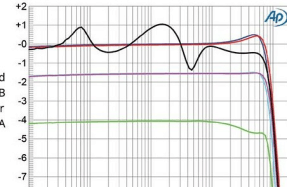RECORD REVIEWS
Calling himself EOB, songwriter/singer/guitarist Ed O’Brien has released his first solo album after 35 years with Radiohead. Over the decades, bandmates have branched out for high-profile projects—Jonny Greenwood writes film scores and Thom Yorke has several solo recordings—but O’Brien has stayed mostly in the background. Earth pushes him to the forefront, revealing a knack for collaborative creativity.
From the first moments of the album’s opening song, “Shangri-La,” it’s apparent that O’Brien is steeped in Radiohead’s musical language—but also that it’s not his only language. The opening percussive riff has a bright-edged coyness that evokes Peter Gabriel more than O’Brien’s usual band, but the falsetto vocal floating over it might call Yorke to mind. The sonic spectrum ranges from crisp maracas at the top to thudding bass at the low end.
Coproduced by punk expert Flood, a friend of O’Brien since childhood who also plays synthesizer on the album, and Catherine Marks, known for her work with The Killers, Earth is a fine example of an artist tapping other people’s talents to make something personal and new.
There’s an impressive roster of guest performers. On “Brasil,” which was released as a single last December, Radiohead’s Colin Greenwood joins on bass, and session giant Omar Hakim comes in on drums as the song’s lush, acoustic intro morphs into electronica. Flood’s spacious, reverberating synths underpin the song’s development. Contrasting “Shangri-La,” O’Brien now sings in his natural baritone range, grounded and a bit breathy. What’s missing is strong lyric-writing to complement the music.
More successful in that regard is “Olympik,” a relentlessly roiling number that hints at society’s hopeless state; it’s no surprise that producer Flood previously worked with Depeche Mode. David Okumu, guitarist with British trio The Invisible, brings his expertise in atmospherics to this and several other tracks; his approach is complemented by contemporary jazz drummer Nathan East. The jazz influence continues with guitarist Adrian Utley of the band Portishead, who adds smooth dissonance to the song “Sail On.”
O’Brien has said that his biggest inspiration for was , Primal Scream’s 1991 release. That record, like this one, has many faces and styles, but one can imagine the machinelike percussive riffs on Primal Scream’s “Slip Inside This House” and the distorted sax and other experimental effects on
You’re reading a preview, subscribe to read more.
Start your free 30 days



